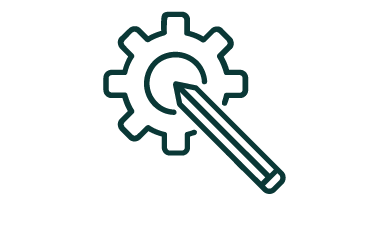Project: SOLIDBAT
Project: SOLIDBAT
H2020 2024 – 2028


SOLIDBAT
Competitive and sustainable lithium solid-state battery technology enabling large scale production for automotive application
H2020 – N. 101147533
Duration
12/2024 – 12/2028 (48 months)
Website
www.solidbat.eu

DESCRIPTION
Project’s aim
The growing energy demand aggravated by the high dependency on non-renewable fossil fuels has severely impacted on climate change, as evidenced by Earth’s global average temperature increase in the last century. Road transport is responsible for around three quarters of transport-related greenhouse gas (GHG) emissions, thus decarbonization of this sector is necessary to achieve a climate neutrality. Battery Electric Vehicles (BEVs) are a crucial enabler for accomplishing this target. In this frame, SOLIDBAT proposes a disruptive solid-state battery (SSB) technology to meet the challenging demands of the automotive sector. The focus is on high energy density SSB (400 Wh/kg, 1000 Wh/L) enabling fast charging, long life, and safety. To achieve these goals, SOLIDBAT entails innovation in five main areas:
i) Digital tools and models for materials development and cell parameters design;
ii) High capacity and water processable surface protected nickel-rich NMC cathode active material;
iii) 3D-texturized high energy lithium metal anode coated with a protective artificial solid-electrolyte interphase (SEI);
iv) Highly conductive and electrochemically stable hybrid gel polymer electrolyte (HGPE), crosslinked in-situ; and
v) Scalable solutions for SSB technology manufacturing that are easily adaptable to current lithium-ion technology, thus hastening the introduction into the EV market.
Moreover, cost, sustainability and recycling are prioritized along the whole project development, in e.g., reducing raw material use and avoiding organic solvents for greener processing. SOLIDBAT’s collaborative consortium spans the whole battery value chain, fostering European innovation and industry growth. By establishing SSB manufacturing in Europe, SOLIDBAT contributes to climate-neutral energy and transport transitions, as well as avoids the dependence of battery production on Asian countries such as the current situation for Li-ion technology.

HOW WE CONTRIBUTE
-
Environmental and economical footprints (LCA and LCC) of SOLIDBAT cells and its application on an electric vehicle
-
Analysis of critical raw materials involved in SOLIDBAT cell manufacturing
-
Preliminary social acceptance considerations on SOLIDBAT technology

